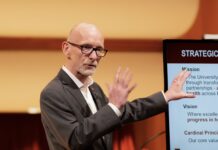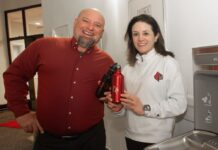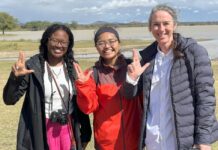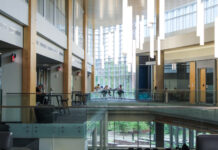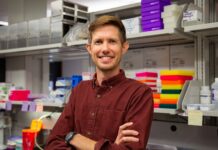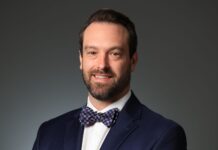Jacobs recently received a prestigious Fulbright teaching grant to lecture for 10 months at Sichuan University School of Public Health in Chengdu. Sichuan University has a long history with the Fulbright program, both receiving American lecturers and sending Chinese Fulbrighters to the United States.
My specific interest in teaching and working in China is to better understand the environmental and public health challenges that China faces in its drive to modernize its infrastructure and to explore the impacts of China’s development on environmental and public health issues at the local level, Jacobs said.
At the same time, he said he hopes to bring UofL students together with Chinese students, and to connect the Chinese students with their community.
Jacobs will teach environmental and public health policy, and he wants to implement an electronic-based peer network between students in Chengdu and UofL Master of Public Health (MPH) students at UofL.
He said he plans to pose questions about such common environmental issues as health risks associated with air pollution, and to ask students from both schools to explore the issues from different social and cultural perspectives.
“Most environmental problems are very complex,” he said. “I want students to think about environmental health from a global perspective.”
The students will have joint assignments, with much of their discussion taking place through e-mail and chat rooms.
But Jacobs also wants to get the Chinese students out of the classroom and into their city.
Chengdu is in Sichuan Province and is the fourth or fifth largest city in China with a population estimated at 11 million people.
The city also was the first of China’s 30 provincial capitals to be awarded the title, ‘sanitary city,’ and it is a green city, as Chinese cities go, Jacobs said.
I would like to have students explore the non-academic environmental initiatives that are in place within the city, to interact with the different organizations and persons involved in those initiatives and, if possible, identify ways they can participate in these activities, he said.
Jacobs said he would like to see the Chinese students work in the community the way that UofL students have worked with the Partnership for a Green City – a collaboration among UofL, Jefferson County Public Schools (JCPS) and Louisville Metro government designed to improve environmental education, environmental health and environmental management.
UofL MPH students have worked with the Partnership to evaluate the impact of asthma on absenteeism in middle schools and to evaluate indoor air quality in local schools. Students also participated with the Partnership in the development of the climate action plan for Louisville Metro.
It is activities like these that I would like to see (Chinese) students become involved with, he said.
The traditional Fulbright faculty exchange sends about 800 U.S. faculty members and professionals abroad annually. The Council for International Exchange of Scholars, a private nonprofit organization, manages the exchange for the Bureau of Educational and Cultural Affairs of the U.S. Department of State.












